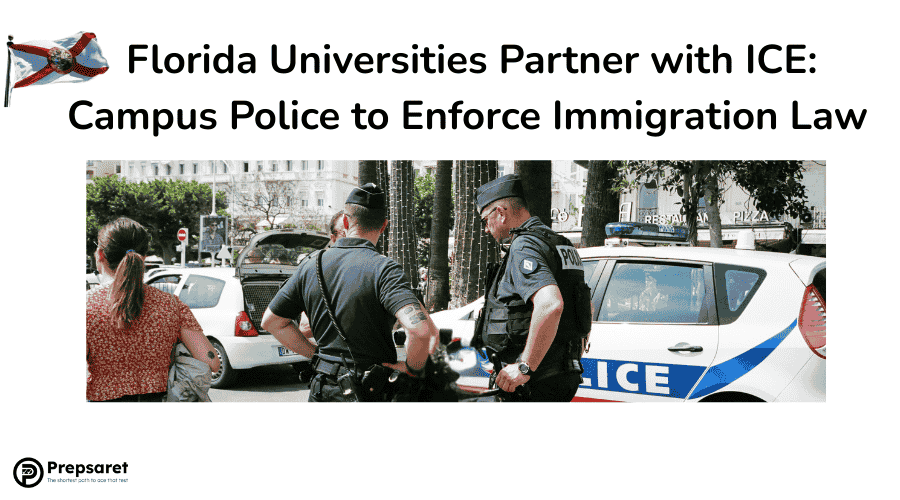Several Florida public universities—including the University of Florida (UF), Florida Atlantic University (FAU), the University of South Florida (USF), and the University of Central Florida (UCF)—have signed agreements with the U.S. Immigration and Customs Enforcement (ICE) under the 287(g) program.
This initiative allows campus police officers to perform certain immigration enforcement functions under ICE supervision, aligning with Governor Ron DeSantis’ directive for state agencies to support federal immigration enforcement efforts.
Expansion of 287(g) Program to Campus Law Enforcement
The 287(g) program enables ICE to delegate specific immigration enforcement powers to state and local law enforcement agencies. Under the task force model pursued by UF, campus police officers are authorized to question individuals about their immigration status and, in certain cases, make arrests without warrants.
FAU spokesperson Joshua Glanzer stated, “We are simply following guidance from the Governor’s Feb. 19 directive to state law enforcement agencies, of which FAUPD and other state university police departments are included.”
The University of Florida confirmed its participation in the program, with a spokesperson stating, “We can confirm that we have signed the 287(g) agreement.” Additionally, the university acknowledged that eight students have had their visas revoked, though it did not provide further details.
Critics argue that this move could create a climate of fear among students, particularly those from immigrant backgrounds. Jennica Charles, a political science student at FAU and daughter of Haitian immigrants, expressed concern: “Who’s to say that someone doesn’t stop me and say, ‘oh I look like I don’t belong … ?’ I definitely think it’s going to make … .”
Miriam Feldblum, CEO of the Presidents’ Alliance on Higher Education … , warned that increased enforcement could deter students from accessing campus resources: “College campuses are supposed to be … . Turning them into sites of immigration enforcement … .”
This development is part of a broader trend under the Trump administration’s intensified immigration policies. Nationwide, over 600 student visas have been revoked, with international students facing increased scrutiny over their social media activity and political expressions.
The administration has emphasized that individuals who advocate violence or support terrorist ideologies targeting Jewish communities are not welcome in the U.S.
The implementation of the 287(g) program on university campuses marks a significant expansion of immigration enforcement into academic settings. As these policies take effect, universities must navigate the complex balance between complying with state directives and maintaining an inclusive, supportive environment for all students.
The long-term implications of these measures remain uncertain, but the immediate impact is a heightened sense of anxiety and division within the academic community. As universities grapple with these changes, the debate over the role of educational institutions in immigration enforcement continues to intensify.
Related Post: Is Chicago Ill’s Wage Transparency Law Effective?

